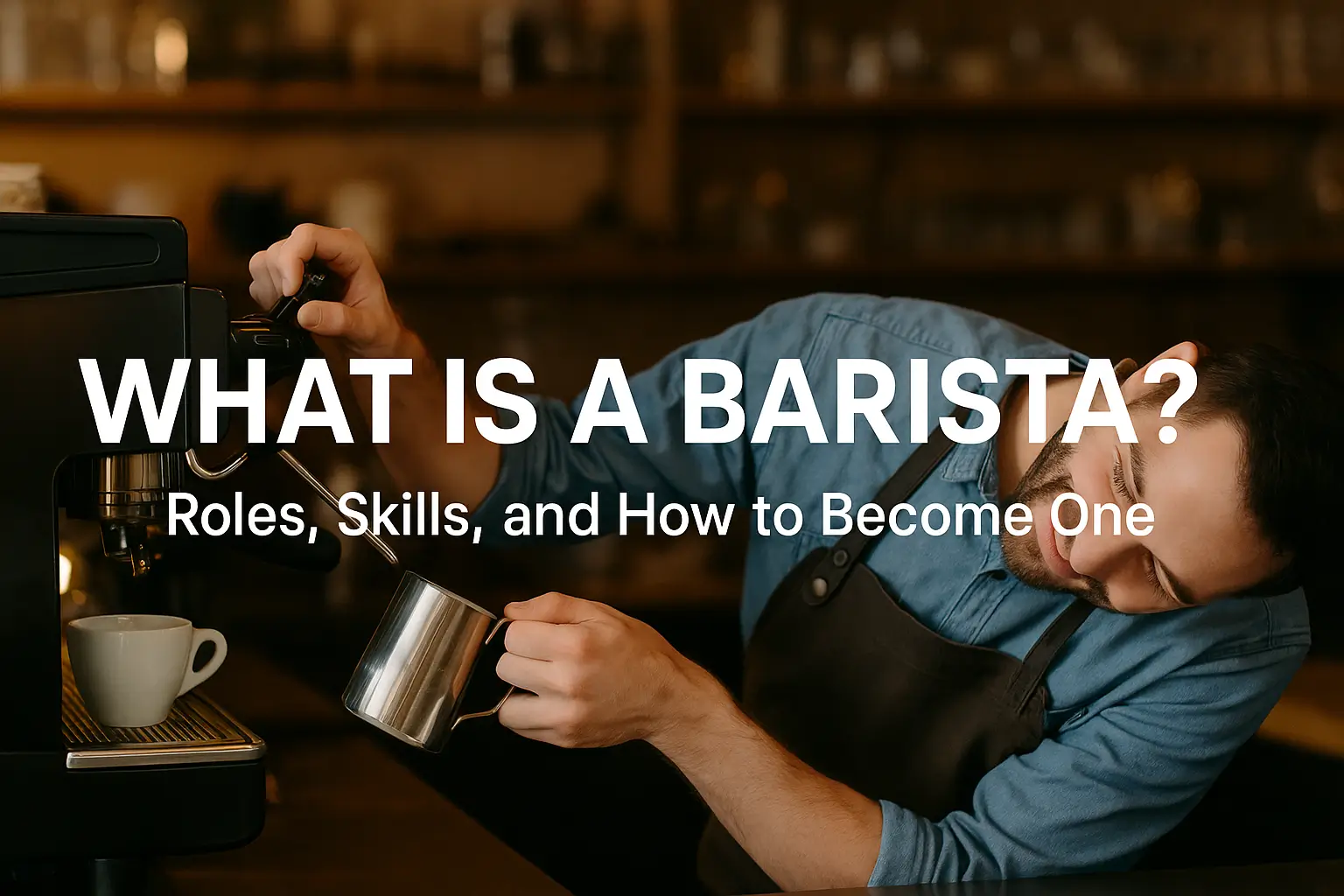When you walk into your favorite café and see someone expertly pulling espresso shots, steaming milk to silky perfection, and turning coffee into art — that’s a barista. But being a barista is much more than making coffee. It’s a blend of craft, speed, creativity, and hospitality.
In this article, we’ll dive into what it really means to be a barista, what skills are essential, and how you can start your journey into this exciting and rewarding profession.
What Does a Barista Do?
A barista is a coffee professional trained in preparing espresso-based drinks and often other brew methods like pour-over, AeroPress, or French press. But their role often extends beyond making drinks.
Main Responsibilities:
- Preparing coffee and espresso drinks
- Grinding and dosing coffee beans
- Steaming and frothing milk
- Cleaning and maintaining equipment
- Providing customer service
- Managing workflow during busy hours
- Learning about coffee origins, roasting, and tasting
- Creating latte art (in some roles)
A barista is often the face of a coffee shop, helping customers feel welcome and informed while ensuring consistent, high-quality drinks.
Key Skills Every Barista Needs
Being a barista requires both technical and interpersonal skills.
1. Espresso Technique
- Understanding grind size, dose, yield, and extraction time
- Dialing in espresso for flavor and consistency
- Calibrating machines and grinders daily
2. Milk Texturing
- Steaming milk to different temperatures and textures
- Creating microfoam for cappuccinos and lattes
- Pouring with control for latte art
3. Time and Workflow Management
- Multitasking during rushes
- Keeping the bar clean and organized
- Managing orders efficiently without sacrificing quality
4. Customer Interaction
- Taking orders with clarity and friendliness
- Handling questions about the menu
- Offering recommendations based on customer preferences
5. Knowledge of Coffee
- Understanding origins and processing methods
- Identifying flavor notes and roast levels
- Explaining differences between drinks (e.g., flat white vs. cappuccino)
What Makes a Great Barista?
Great baristas go beyond the basics — they’re constantly improving, passionate about coffee, and obsessed with detail.
Characteristics of a great barista:
- Curiosity and willingness to learn
- Consistency and precision
- Cleanliness and organization
- Empathy and communication
- Grace under pressure
Coffee is both an art and a science — baristas balance both.
How to Become a Barista
Step 1: Learn the Basics
Start by learning coffee fundamentals:
- Brew methods (drip, French press, espresso)
- Espresso extraction and grinder settings
- Milk steaming techniques
- Coffee-to-water ratios and temperatures
Many aspiring baristas begin by practicing at home with tools like:
- Manual espresso machines
- Milk frothers or steam wands
- Scales, thermometers, and timers
Step 2: Take a Course (Optional but Valuable)
Look for:
- Barista training programs at local cafés
- Online courses (e.g., Barista Hustle, SCA modules)
- Workshops or events hosted by coffee roasters
Certification from the Specialty Coffee Association (SCA) can boost your resume.
Step 3: Apply for Entry-Level Café Jobs
Start as a:
- Café assistant
- Coffee runner
- Trainee barista
Show your passion, willingness to learn, and commitment to the team. Many shops train from within.
Step 4: Learn On the Job
Watch experienced baristas closely. Ask questions. Take notes. Practice daily. The café is your classroom.
Step 5: Continue Learning
Great baristas never stop learning. Follow coffee blogs, join online communities, attend local coffee events, and taste different beans regularly to sharpen your palate.
Barista Career Paths
Being a barista can lead to exciting opportunities in the coffee industry:
| Career Path | Description |
|---|---|
| Head Barista | Oversees daily operations and training |
| Coffee Trainer | Teaches new hires or runs workshops |
| Café Manager | Manages staff, inventory, and performance |
| Roaster | Works at a roastery selecting and roasting beans |
| Coffee Consultant | Helps cafés improve their service and offerings |
| Competitor | Competes in latte art or barista championships |
| Coffee Shop Owner | Opens and operates their own business |
Common Barista Myths
- “It’s just pushing buttons.” – No, it’s balancing pressure, temperature, grind, and timing to craft something beautiful.
- “Anyone can do it.” – With practice, yes. But excellent baristas are skilled professionals.
- “It’s not a real career.” – Tell that to the thousands of passionate baristas who become educators, managers, and entrepreneurs.
Tools of the Trade
A skilled barista relies on quality tools, including:
- Espresso machine and grinder
- Scales and timers
- Thermometers and milk pitchers
- Tamper and distribution tools
- Cleaning supplies
At home, a simple setup with an espresso maker or pour-over gear can help you practice essential skills.
Final Thoughts: Becoming a Barista
Being a barista is more than making lattes — it’s about care, craft, and connecting with people. Whether you dream of working in a third-wave café, opening your own coffee shop, or just brewing like a pro at home, barista skills are both valuable and versatile.
It all starts with passion and practice — and one great cup at a time.
